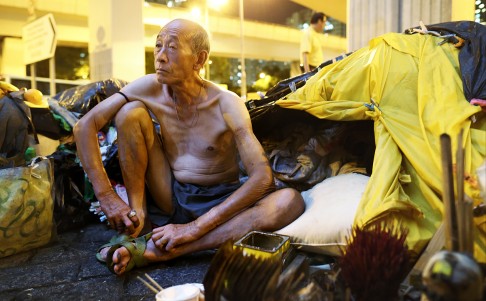
'I'd rather live on the streets than in a filthy subdivided flat': action needed to tackle Hong Kong's homeless
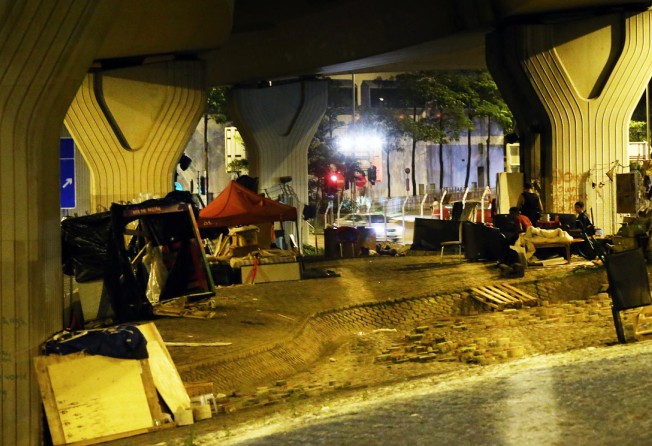
For the past 16 years, "home" for Leung Bing-kuen has been a couple of ratty mattresses under the Ferry Street flyover in Yau Ma Tei. He has not been able to get regular work since losing his job as a repairman in 1998, and can ill afford the rent for a bed space, let alone a room.
"Many places are not suitable for me," says 60-year-old Leung. "Subdivided flats are so small, there isn't even room to stand - you open the door and you're already at the bed. Anyway, they cost about HK$1,800. It would be pointless."
Leung makes his living from collecting cardboard boxes for recycling, earning between HK$50 and HK$60 from 13 hours of labour each day.
"The money I earn now is just enough to buy food; sometimes when there isn't enough, I eat one meal a day," Leung says. "It's not that I don't want proper work, but at my age and with my health, it's hard to find jobs."

His earnings could stretch to accommodate a bed space, but Keung says he's had enough of that and finds the uncertainties of bedding down in the streets preferable.
"I've rented a subdivided flat before, but the conditions were so poor that I ended up sleeping in the park downstairs," he says. "It was terrible."
Recalling past experiences, he says: "Stains on the floor are so thick and sticky that it feels like glue on your feet as you walk past. There's always a stench of rubbish. You turn off the lights and an army of woodlice emerge - how can you sleep?
"I'd rather sleep under the flyover than rent those places again."
The two men were among 40 street sleepers facing eviction from under the Ferry Street flyover after a decision by the Yau Tsim Mong District Council to "beautify" the area - by fencing it off to create temporary storage for rubbish bins.
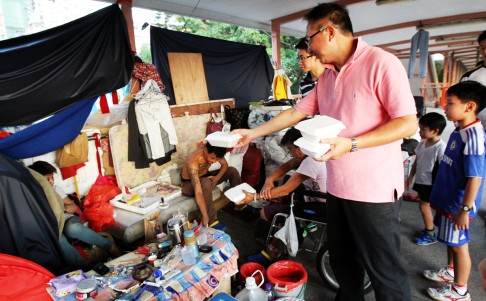
"The authorities keep chasing us away, but that doesn't mean we'll all find a place to stay and leave the streets. We just find another place to sleep."
Leung, who has since decamped to another flyover, agrees. "If they close off [the place] where I'm staying again, I guess I will sleep under balconies or pedestrian bridges," he says. "If I construct my cardboard [shell] well enough, wind and rain won't affect me."
Since 2004, the Social Welfare Department has allocated funds to three NGOs - the Salvation Army, St James' Settlement and the Christian Concern for the Homeless Association - to run help services for the homeless. Last year, the organisations were awarded about HK$11.4 million between them.
Despite such efforts, the number of street sleepers registered with the department has climbed steadily over the past five years, from 393 in December 2010 to 784 in November 2014.
The actual numbers are likely to be higher. A street count conducted by the City University in 2013 found there were more than 1,400 people in Hong Kong without a stable or permanent home. A recent joint meeting of the three NGOs working with the homeless estimated there were between 1,000 and 1,200 street sleepers at the end of 2014.
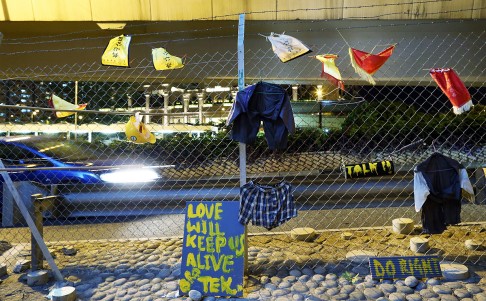
"There are mainly four types of street sleepers in Hong Kong: those who are mentally ill, drug addicts, former convicts and the very poor. Yet government services overlook many of them," Wong says.
Wong cites assistance under the Comprehensive Social Security Assistance Scheme as an example.
"Even if you provide financial help to street sleepers, it isn't very effective if aftercare services are lacking," Wong says. People who are mentally ill or have drug problems will end up being homeless again if they don't get counselling and support.
Moses Wang, a social worker from Christian Concern for the Homeless Association, agrees. Material and monetary support don't help if recipients can't beat their personal demons, he says, noting that more than 60 per cent of the homeless he has dealt with struggle with addiction.
District politicians and officials sometimes show little sympathy for their plight, and even challenge neighbourhood efforts to help the homeless.
I want proper work, but at my age, with my health, it's hard to find jobs
Last year, a social welfare officer controversially said that free meals being given out by various charitable groups in Sham Shui Po were acting as a disincentive for the homeless to move to regular accommodation - and served as a magnet for street sleepers from other districts.
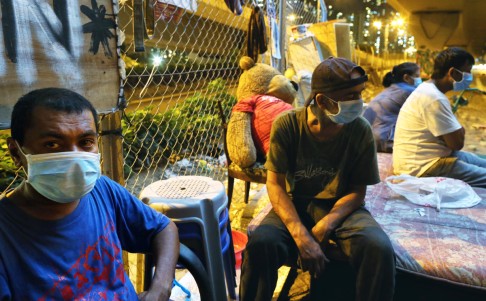
A homeless man calling himself Ah Ming has a tart reply: "No one is willing to live on the street for a free lunch box. Those who think so are welcome to come and give it a try," he says.
Law Chi-kwong, an associate professor in the University of Hong Kong's department of social work and social administration, recognises the logic behind the district official's comments. The idea is for people to help themselves, and "if we give away fish without teaching them how to fish, there is always the risk of creating dependency", Law says. "We need to strike a balance."
That balance seems hard to achieve. Ng Wai-tung, a social worker with the Society for Community Organisation, believes the problem is the the shortage of affordable housing, especially for low-income single people.
Although many of the homeless join the queue to rent public housing units, just five secured a place last year. Another 35 people received rent subsidy, and hundreds continue to wait in the streets.
Many of the homeless in Sham Shui Po hope to get a job rather than depend on welfare, Ng says, but few are able to secure work.
Kong Ho-man is among the few who has. Over the past year, he has kept a part-time car washing job, which has enabled him to afford space in a subdivided unit. Kong relied solely on his monthly welfare allowance of HK$2,000 for two years, after being forced to live on the street because he could not secure any stable work.
"Sometimes it was because I could not provide proof of address. Sometimes it's just that I smelled really bad," he says.
In a 2012 poll of 103 homeless people who did not receive public welfare, Society for Community Organisation found that half of respondents said they were turned away from jobs for being too old, while 40 per cent said employers could not take "the street" as an address.
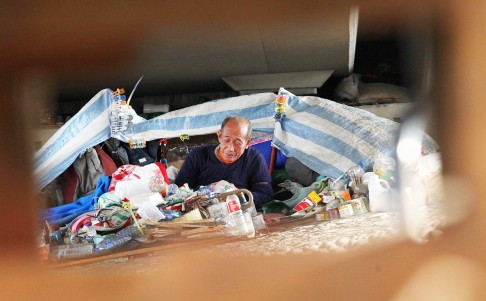
Simon Wong Kwok-ching, community relations director for the Salvation Army, says helping the homeless leave the streets isn't a simple matter.
"The reasons for them being homeless are complicated; it can be difficult to persuade them to leave the streets," he says. "Resolving a case can take up to three years."
Still, the homeless can seek temporary relief at two hostels run by the Salvation Army: Yee On Hostel, a men-only facility in Mong Kok with a capacity for 40 people, and Sunrise House, a residence in Cheung Sha Wan with rooms for 310 people.
A bunk bed space at Yee On Hostel costs HK$1,535 per month, while rent for a 100 sq ft room at Sunrise House ranges from HK$1,080 to HK$1,260 per month. Applicants must be referred by social worker, and priority is given to the elderly, and those in poor health.
Chan Ming, 71, has been sharing a room with five others in Yee On Hostel for the past two months. "My flatmates and I get along well and we keep the room clean," says Chan with a smile. "Now I go to yum cha and church gatherings in the mornings and come back in the evening. I'm quite happy here."
Simon Wong Hung-sang, the manager of St James' Settlement's integrated service for street sleepers, believes that the best way to help street sleepers is to use old buildings scheduled for urban renewal, where ownership issues have been settled.
"There's usually a period of about one year before the emptied buildings are demolished and rebuilt," he says. "Lending such places to NGOs for use as free short term hostels for street sleepers would be very helpful."